When Johannes Brahms first met Richard Wagner in 1863 he played his Variations and Fugue on a Theme by Handel, Op. 24 for the prophet of the “Artwork of the Future.” The work sounds like an impressive catalogue of variation techniques and musical styles, ranging from simple dances to devilish etudes, wistful romances, and a massive fugue. Wagner was impressed and remarked, “One sees what may still be done in the old forms when someone comes along who knows how to use them.”
Johannes Brahms: Variations and Fugue on a Theme by Handel, Op. 24 (Theme, Var. 1-4) (Julius Katchen, piano)
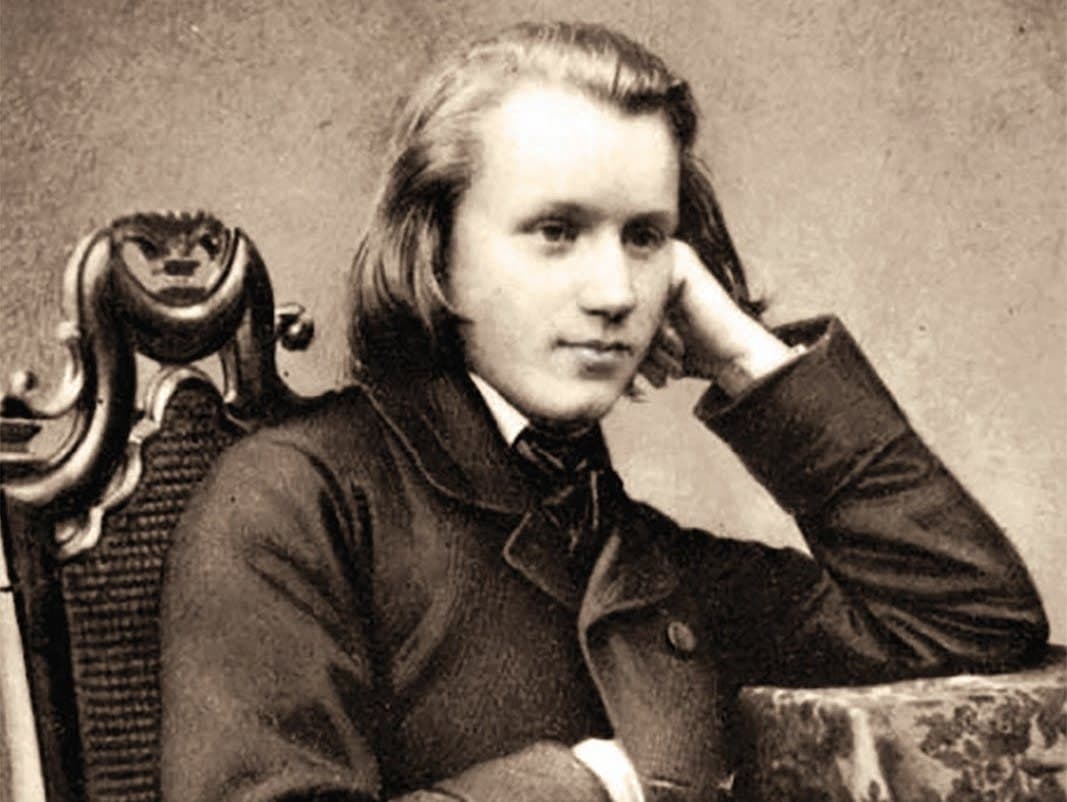
Johannes Brahms, 1853
Composed in Hamburg in September 1861 the Handel Variations are a systematic summation of the composer’s intense study of music theory that lasted well over a decade. The study of counterpoint had allowed him to control musical texture in any style, and infuse his music—without any verbal or written programme—with highly imaginative musical allusions, moods, and characters.
Johannes Brahms: Variations and Fugue on a Theme by Handel, Op. 24 (Var. 5-6) (Julius Katchen, piano)
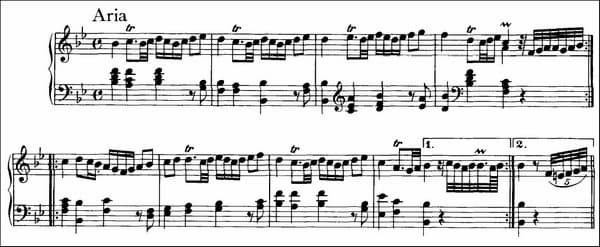
The Theme of Brahms’ Handel Variations
The work was dedicated to a “beloved friend,” Clara Schumann, and presented to her on her 42nd birthday on 13 September 1861. Clara played the work at a soirée in December and reports, “I was in agonies of nervousness, but I played them well all the same, and they were much applauded. Johannes, however, hurt me very much by his indifference. He declared that he could no longer bear to hear the variations, it was altogether too dreadful for him to listen to anything of his own and to have to sit by and do nothing.”
Johannes Brahms: Variations and Fugue on a Theme by Handel, Op. 24 (Var. 7-8) (Julius Katchen, piano)
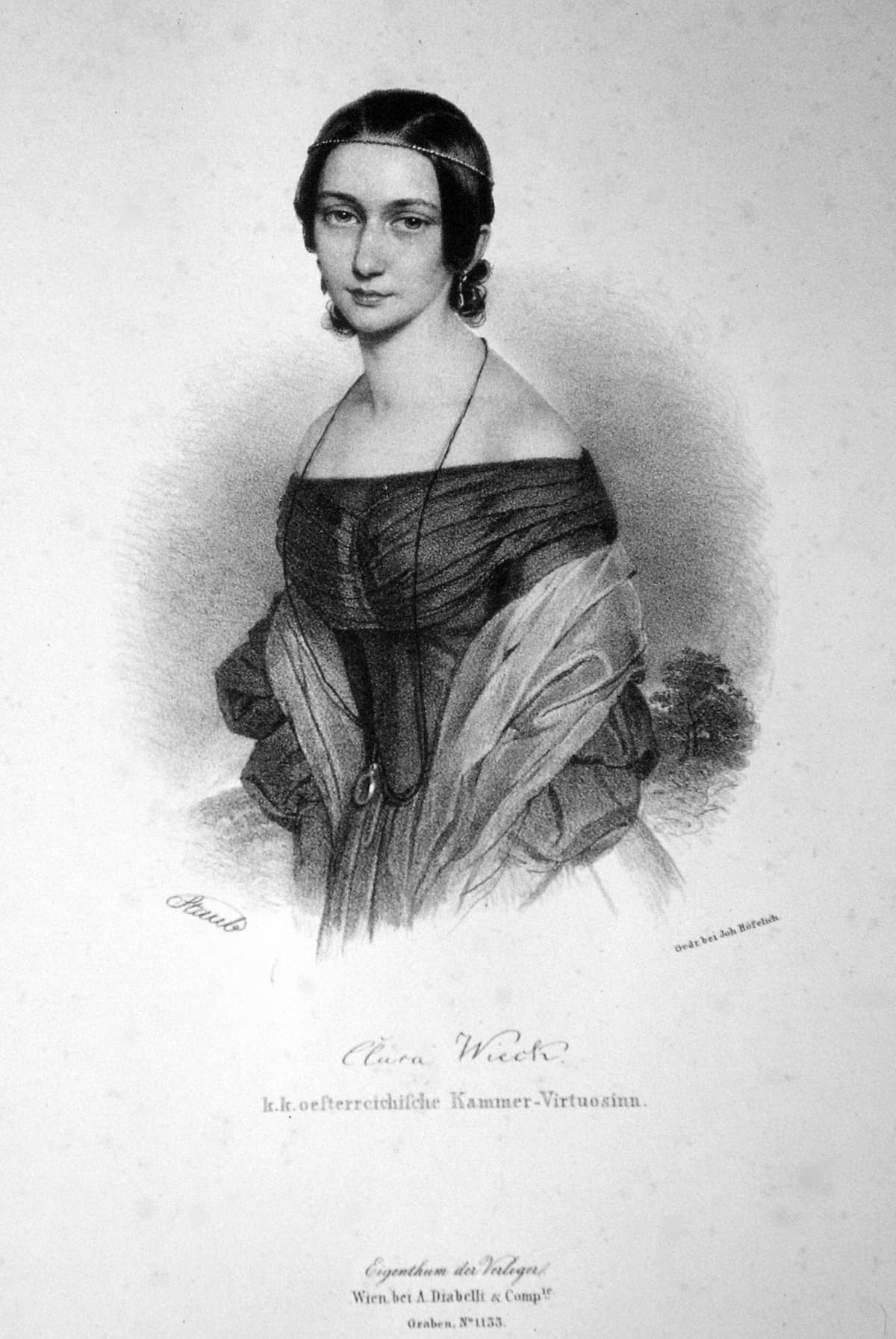
Andreas Staub: Clara Wieck, 1839
And Clara further confided in her diary, “Although I can well understand this feeling, I cannot help finding it hard when one has devoted all one’s powers to a work, and the composer himself has not a kind word for it.” With characteristic grumpiness, Brahms simply hid his own feelings. As he wrote to a friend soon after, “Look out for the Variations and Fugue when they come to the light of day. Compared with my other music I consider these pieces highly special, and am fond of it.”
Johannes Brahms: Variations and Fugue on a Theme by Handel, Op. 24 (Var. 9-12) (Julius Katchen, piano)
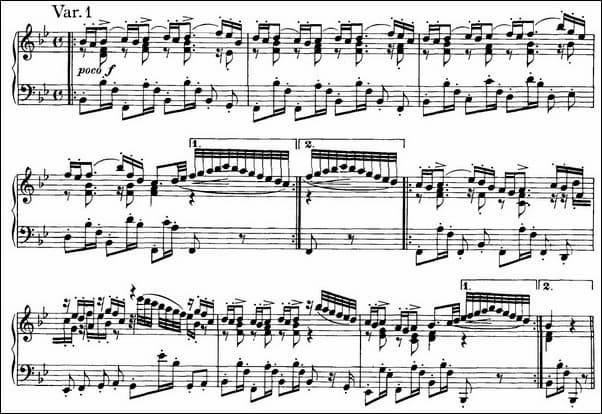
Variation 1
The theme of the work is the “Air” from Handel’s B-flat major harpsichord suite, published in 1733. Brahms owned a copy of the first edition, and he detailed his approach to writing variations in a number of letters. “In a theme for a set of variations,” he writes, “only the bass has any meaning for me. But this is sacred to me, it is the firm foundation on which I then build my stories.”
Johannes Brahms: Variations and Fugue on a Theme by Handel, Op. 24 (Var. 13-18) (Julius Katchen, piano)
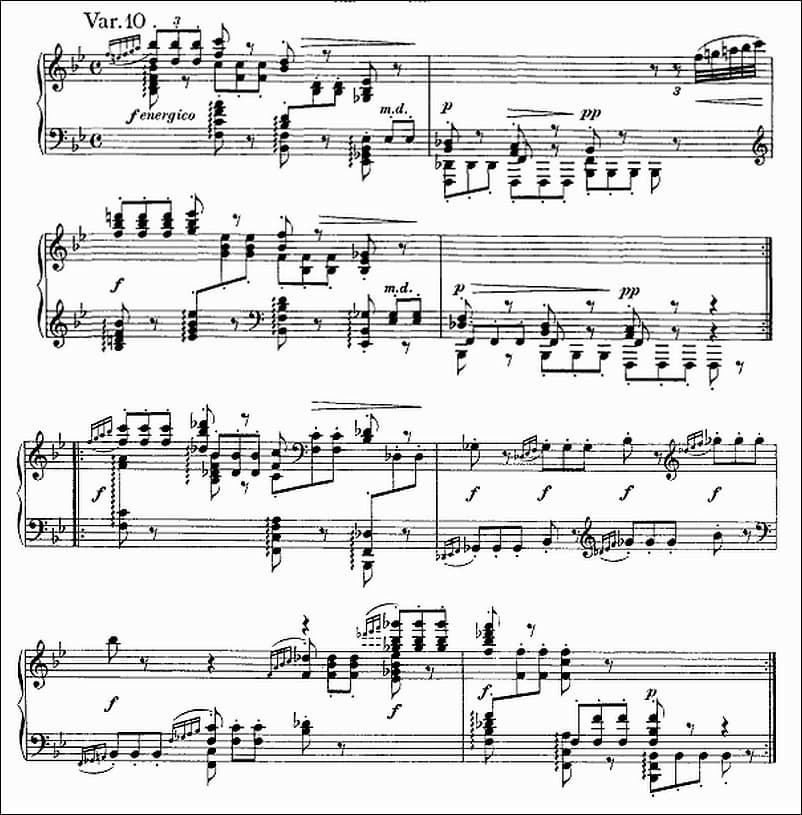
Variation 10
Brahms continues, “What I do with a melody is only playing around, ingeniously playing around. If I vary only the melody, then I cannot easily be more than clever or graceful, or, indeed, if full of feeling, deepen a pretty thought. On the given bass, I invent something actually new, I discover new melodies in it, I create. The role of the bass is critical.” To be sure, Brahms found a great diversity of expression and character in that theme, including forms such as the siciliana, a musette, a canon, and a fugue.
Johannes Brahms: Variations and Fugue on a Theme by Handel, Op. 24 (Var. 19-21) (Julius Katchen, piano)
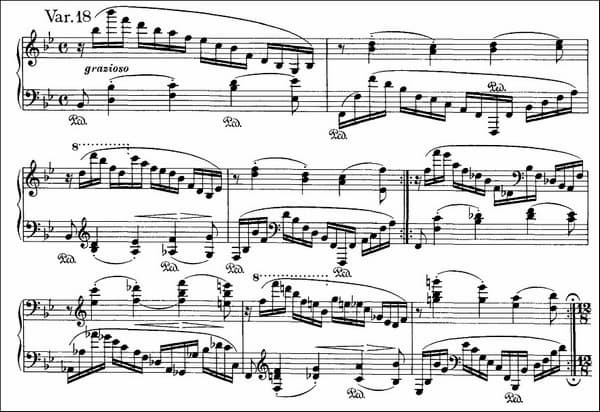
Variation 18
The work consists of a theme and twenty-five variations, plus a fugue which provides the climax of the work. A scholar writes, the “individual variations are grouped in such a way as to create a series of waves, both in terms of tempo and dynamics, leading to the final fugue, and superimposed on this overall organization are a number of subordinate patterns… Each variation derives coherence not from the relationship to the theme but what comes before and after it.” As such, unity relies on a network of musical resemblances between different variations.
Johannes Brahms: Variations and Fugue on a Theme by Handel, Op. 24 (Var. 22-25) (Julius Katchen, piano)
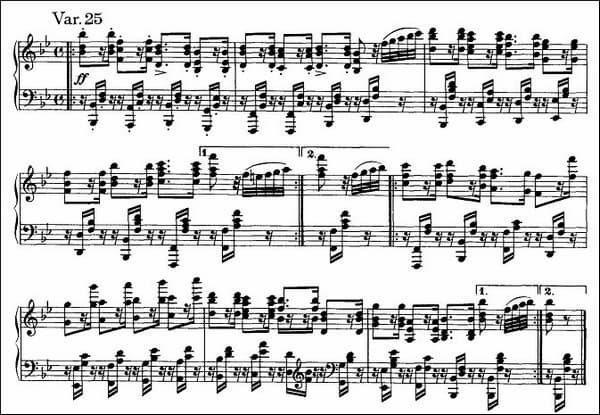
Variation 25
Clara Schumann premiered the work in Hamburg on 7 December, and it was well received. In fact, she repeated her performance in Leipzig shortly thereafter. Not to be outdone, Brahms also gave public performances of the work, and he negotiated with Breitkopf & Härtel for publication. As Brahms writes, I consider this work to be much better than my earlier ones; I think it is also much better adapted to the demands of performance and will therefore be easier to market.”
For more of the best in classical music, sign up for our E-Newsletter
Johannes Brahms: Variations and Fugue on a Theme by Handel, Op. 24 (Fugue) (Julius Katchen, piano)
